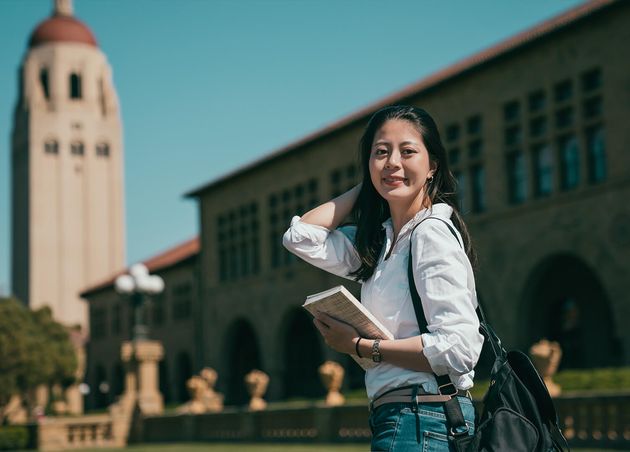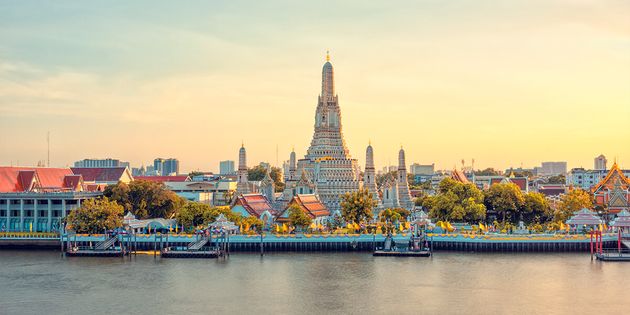Navigating Thai Higher Education: Government vs. Private Universities
Thailand boasts two distinct types of universities: public and private. These Thai institutions offer students the opportunity to pursue a variety of subjects at different academic levels. A board of governors governs public universities in Thailand, whereas private universities operate under the management of a board of directors.
Public universities receive government funding, ensuring Thai citizens can access these institutions at no cost through selection exams. On the other hand, private universities rely on tuition fees to sustain their operations. Affordability is a key feature, allowing individuals to enter and pursue their studies in private universities.
While both types of universities share similarities, such as providing educational opportunities, they also have differences that set them apart. The distinction in governance structures and funding sources creates a diverse landscape for students to choose the educational path that aligns with their preferences and circumstances.
Let's dig in and learn more about these universities as you plan your educational journey in Thailand!
🚀 Expat Fact!
The oldest university in Thailand is Chulalongkorn University, founded in 1917.
Exploring Public Higher Education in Thailand
Public universities in Thailand operate with significant funding and management from the Thai government, with the Ministry of University Affairs (MUA) playing a pivotal role in their oversight and licensing. These institutions tend to be larger in size, offering a diverse range of academic programs.
The public universities in Thailand are renowned for their high-quality teaching and research, attracting students due to superior resources and facilities. The government's commitment to funding these institutions ensures they have better resources than private universities. Public universities are also research-intensive, actively engaging in research activities, contributing to their academic reputation.
One key aspect that contributes to the popularity of public universities is their commitment to not charging fees for Thai citizens. While these universities are tuition-free, competitive entrance exams, such as The National University Entrance Examination (NUTE), determine admission. Although additional fees like application or student union fees may exist, the government funds the core Thai educational programs.
The competition to secure a spot in a public university is intense, with the number of applications often exceeding the acceptance limit. As a result, only a limited percentage of applications are approved, leading to a highly competitive environment. The National University Entrance Examination is a standardized test for high school graduates aspiring to enter a public university and pursue their academic goals.
Indeed, public universities in Thailand come with their set of advantages and disadvantages, as you see below:
- Advantages
- Higher Academic Reputation
- Public universities often have a well-established reputation for academic excellence due to their commitment to quality teaching and research.
- Public universities often have a well-established reputation for academic excellence due to their commitment to quality teaching and research.
- More Research-Intensive
- These institutions actively engage in research activities, contributing to advancements in various fields.
- These institutions actively engage in research activities, contributing to advancements in various fields.
- Better Facilities
- Public universities tend to have superior resources and facilities, offering students a conducive learning environment.
- Public universities tend to have superior resources and facilities, offering students a conducive learning environment.
- Tuition-Free for Thai Citizens
- The government funds Public universities, making education accessible to Thai citizens without tuition fees.
- The government funds Public universities, making education accessible to Thai citizens without tuition fees.
- Larger Community
- With a larger student population, public universities provide a diverse and vibrant community for students to engage with.
- Higher Academic Reputation
- Disadvantages
-
- Slow-Moving
- Bureaucratic processes in public universities can sometimes result in slower decision-making and administrative procedures.
- Bureaucratic processes in public universities can sometimes result in slower decision-making and administrative procedures.
- Larger Classes
- Due to the high demand and larger student intake, classes may be more crowded, potentially leading to less individualized attention.
- Due to the high demand and larger student intake, classes may be more crowded, potentially leading to less individualized attention.
- High Competition
- The competitive nature of admissions can make it challenging for students to secure a spot in public universities, leading to increased pressure.
- Slow-Moving
While public universities offer numerous benefits, students must consider these factors in light of their personal preferences and academic goals.
🚀 Expat Trivia
Usually, private universities are more responsive to students than public universities.
Navigating Thailand's Private University Landscape
Private universities in Thailand, operating independently without government funding, benefit from investments and tuition fees. Typically smaller than public universities, each private institution is overseen by a board of directors.
One notable advantage of private universities is the intimate class sizes. In these smaller settings, instructors can provide individualized attention, fostering lively discussions and engaging academic activities. Students benefit from a comfortable and interactive learning environment, positively impacting the overall educational experience in Thailand.
These private universities in Thailand excel in offering more specialized programs, focusing on specific fields like design, law, and business. With less crowded classrooms, students can immerse themselves in a community of like-minded individuals, facilitating specialization in their chosen field. The institutions are often more responsive to students, demonstrating a flexible approach to scheduling and credit transfers. This adaptability enhances the overall student experience regarding course management and academic progress.
Despite these advantages, private universities come with certain drawbacks. They typically involve higher costs than public universities, relying solely on tuition fees and investments for financial support. Consequently, financial aid options may be limited, with private universities offering less assistance than their public counterparts. This is attributed to the higher operating costs and the assumption that students can afford tuition without substantial aid.
Additionally, the selective admission process in Thai private universities contributes to a less diverse student body, as admitted students share similar backgrounds. Despite these drawbacks, private universities offer advantages such as smaller class sizes, specialized programs, and increased flexibility, making them a viable option for students seeking a more tailored and responsive educational experience.
For your quick reference, below are some advantages and disadvantages that most private universities in Thailand may have:
- Advantages
-
- Smaller Classes
- Private universities feature smaller classes, allowing for more personalized attention and dynamic engagement in discussions and activities, positively impacting the educational system.
- Private universities feature smaller classes, allowing for more personalized attention and dynamic engagement in discussions and activities, positively impacting the educational system.
- Specialized Programs
- These institutions often provide more specialized programs, allowing students to focus on specific fields of interest and fostering a more concentrated learning environment.
- These institutions often provide more specialized programs, allowing students to focus on specific fields of interest and fostering a more concentrated learning environment.
- Flexibility
- Private universities are more responsive and flexible in their approach towards students regarding scheduling and credit transfers.
- Private universities are more responsive and flexible in their approach towards students regarding scheduling and credit transfers.
- Innovation
- With a more independent structure, private universities can often be more innovative in teaching methods and programs.
- Smaller Classes
- Disadvantages
-
- Higher Tuition Fees
- Private universities typically cost more than public ones, relying solely on tuition fees and investments to cover operational expenses.
- Private universities typically cost more than public ones, relying solely on tuition fees and investments to cover operational expenses.
- Less Financial Aid
- Due to financial constraints, private universities may offer less financial aid than public counterparts, limiting student support options.
- Due to financial constraints, private universities may offer less financial aid than public counterparts, limiting student support options.
- Less Diversity
- The selective admission process in private universities can result in a less diverse student body, as students often come from similar backgrounds.
- Higher Tuition Fees
Choosing the Right Path: Public vs. Private Thailand Universities
Securing a quality education is of utmost importance, regardless of whether one chooses a private or public university in Thailand. When evaluating educational institutions, it is crucial to focus on program quality, curriculum, and the qualifications of the instructors guiding the academic journey. Prospective candidates can conveniently access relevant information and submit applications through the university's official website.
Before finalizing enrollment, it is highly recommended to acquaint oneself with the campus environment. Exploring the surroundings aids in making informed decisions about accommodation options for the duration of the academic journey in Thailand. Equally important is a thorough understanding of the curriculum. Ensuring that the curriculum aligns with one's goals and educational needs is imperative for a fulfilling and successful academic experience.
Selecting a university for higher education is a significant decision that requires thorough consideration. Students must conduct in-depth research to identify the most suitable study programs and universities that align with their needs and goals.
Choosing the right university is multifaceted and involves carefully evaluating financial considerations, personal preferences, and long-term objectives. By meticulously examining each detail, making comparisons, and weighing the options, students can decide to find the university that best caters to their unique circumstances and aspirations.
Expat Bear
More From The Bear World
Best Countries for Digital Nomads: Finding Remote Work and a New Home
Marc Tubelleja (Curious Bear)




















